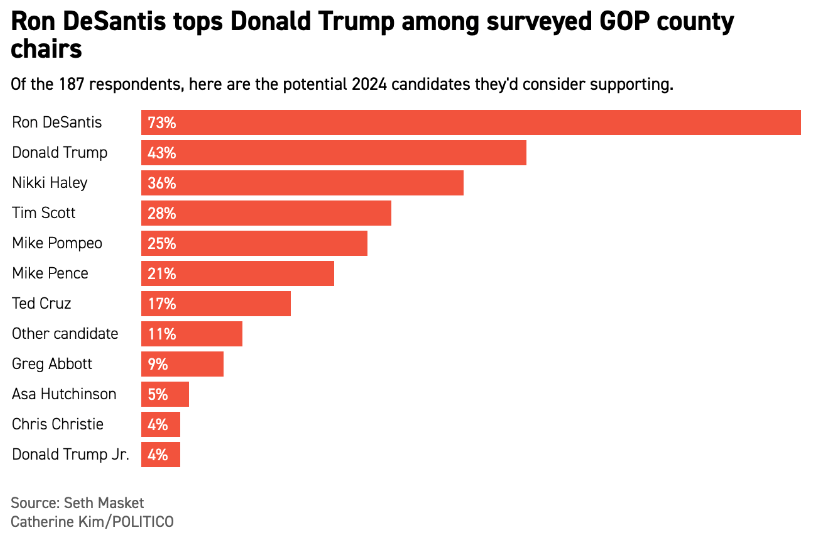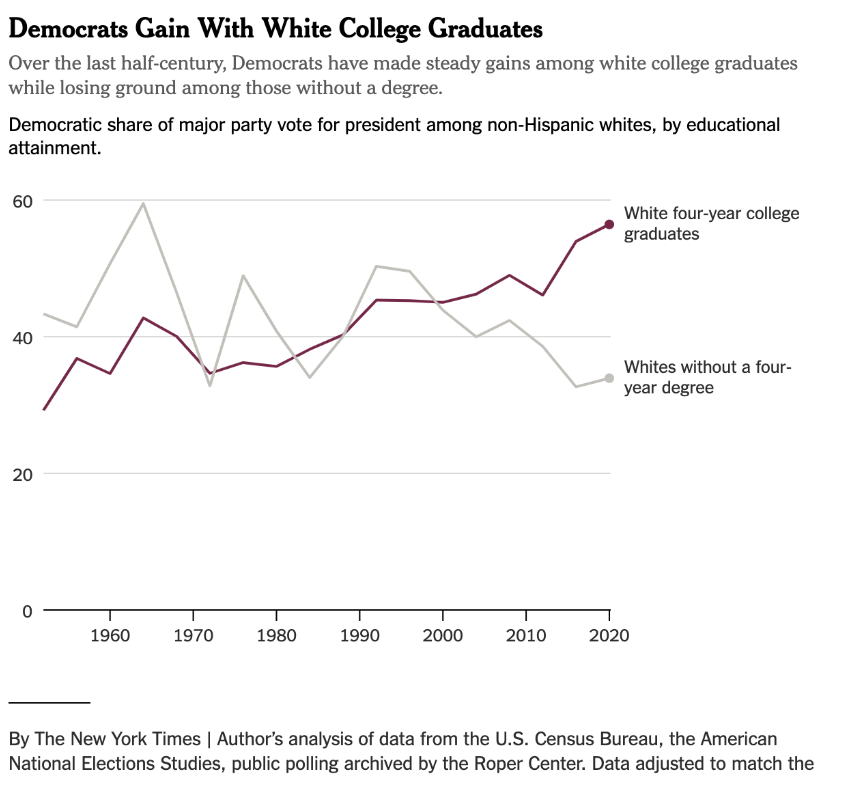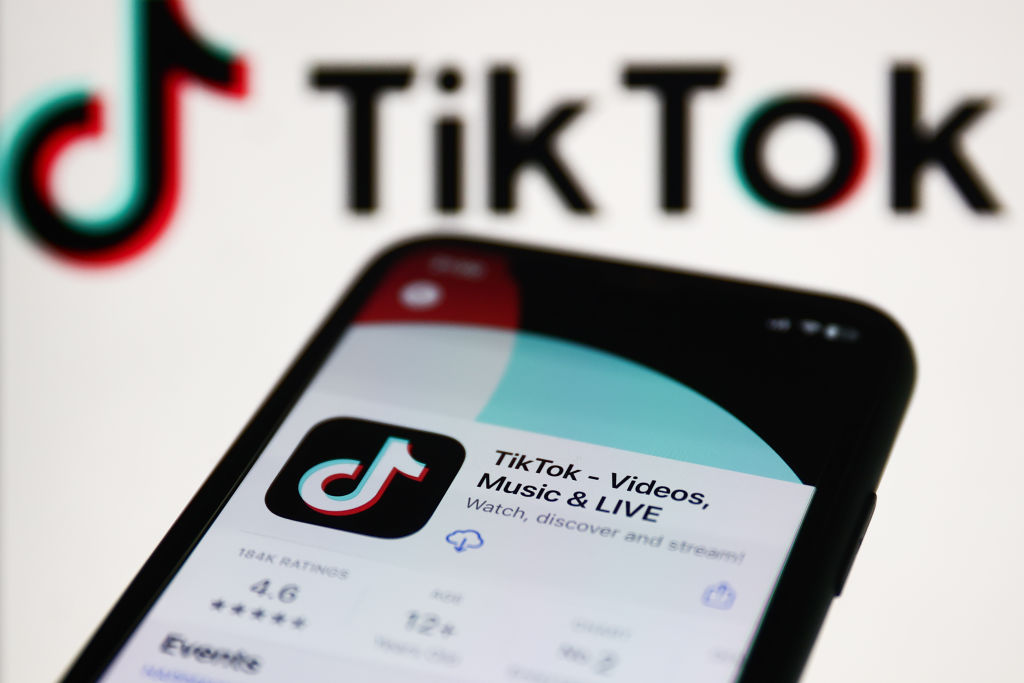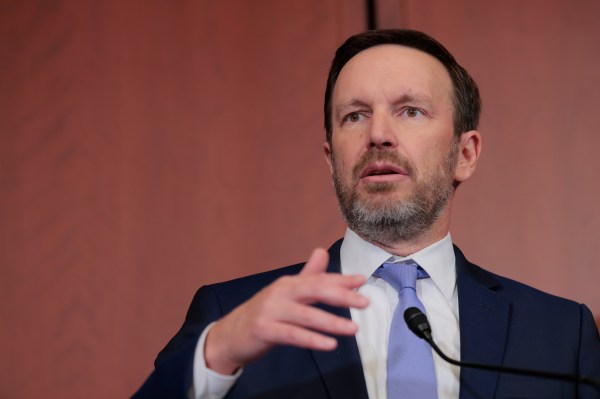Appetizer
There’s all sorts of reasons the United States should ban TikTok.
Or
I love TikTok—by far the most entertaining and addictive app I’ve ever had on my phone—which is why I deleted it about two years ago. And then reinstalled it a few months after that. And then deleted it again about a year ago after my husband noted that I was spending more and more time before bed watching cat videos like a crazy person. Like any addict, I miss it every day.
So it came as no surprise when the Biden administration announced that it was banning the app on government phones, which is set to take effect at the end of the month. That makes perfect sense. But if it’s so bad, why is it a risk only to government employees?
On any given day, maybe 100 million other Americans still use the app. If basically allowing a foreign adversary to access 100 million Americans’ data and feed them information to undermine America’s economy, trust in our institutions and political discourse–why doesn’t the U.S. just ban it altogether?
There are some technical answers to this question and some legal questions that would need to be answered. (And while I don’t want to gloss over either of those, this ain’t that kind of newsletter. So gloss, we shall.)
But there’s one reason that makes perfect sense and is terrifying: The people who are most likely to use TikTok on a regular basis are not evenly distributed across the political spectrum. They’re young. They’re liberal.
If the Biden administration were to ban TikTok, which is being increasingly used by Democratic candidates to reach potential voters through dance memes and short videos, they’d be handicapping their own political party in 2024 far more than the Republicans.
One Democratic consultant told the Wall Street Journal that banning TikTok “would be ‘politically insane’” and a Democratic strategist said “‘you wouldn’t want a tool like that to be taken off the shelf.’”
And that’s not even taking into account how politically unpopular a ban would be with young voters addicted to the app. “The politician in me thinks you’re gonna literally lose every voter under 35, forever,” Commerce Secretary Gina Raimondo told Bloomberg in an interview in which she was kind of joking but also not at all joking.
There’s another way to look at this. Perhaps the reason that Republicans are so eager to ban TikTok is because they see no political risk to themselves. Or because they know banning the app will hurt Democrats more. I think there’s some truth to this. If there were a program predominantly relied on by old people with whom the GOP has the electoral advantage, would Republicans be so quick to call for it to be eliminated, even if that program threatened to upend the U.S. economy?
Oh wait. The programs are called Social Security and Medicare. And sitting here right now, I have no idea what the Republican Party position is. So perhaps there’s your answer.
(Yes,I know it’s not apples-to-apples because Social Security isn’t going bankrupt thanks to the CCP, which stands to benefit at our expense. But hopefully you see my point anyway.)
Competitive advantage is how one wins elections, and it’s going to be damn near impossible for any political party to agree to give up any real competitive advantage for the good of the order. Especially during an election cycle. And we’re always in an election cycle.
Main Course
Seth Masket published a survey of GOP county chairs at Politico. These are the folks, as he notes, who are “both activists and prominent local figures in the party, who are likely to help influence how others view the 2024 contenders … county chairs are the kind of people that successful candidates want on their side during the ‘invisible primary,’ when fundraising and endorsements and polling start to matter.” That’s very, very true. Before we get to what he found, it is worth noting that this wasn’t a very big survey in the end:
In my capacity as director of the Center on American Politics at the University of Denver, I sent this survey out to nearly 3,000 Republican Party chairs — for every county in the country — and ultimately 187 responded. It’s fewer than I would have liked, but it’s certainly enough to conduct a statistically useful analysis. There’s no obvious bias embedded within the survey that I can find; respondents hailed from every region of the country, from Florida to North Dakota to Rhode Island; 91 percent described themselves as “conservative” or “very conservative.”
Now to the results. First up, who they want:

Second, he asked who they definitely didn’t want.

It’s easy to overread the “don’t want” graphic, I think. Back in 2015, I think we would have seen similar numbers for Trump, but as we learned in primaries, voters don’t get to vote for who they don’t want. And if a plurality wants a candidate, it won’t matter whether the majority doesn’t want him. The difference from 2015 is that we also would have seen high “don’t want” numbers for all the other candidates too. And that’s where the Ron DeSantis numbers come in—high “want,” very low “don’t want.”
(But I’ll also admit I’m a little skeptical that there isn’t some difference between the 187 county chairs who answered the survey and the 2,813 that didn’t. I don’t doubt that their demographics could all look representative in any number of ways—regionally, conservative-ness, etc. But the category of people who take the time to answer may be its own bias toward change or enthusiasm or openness. It’s hard to say.)
Of course, there was more bad polling news for Trump. According to a new Des Moines Register/Mediacom Iowa Poll, “the percentage of Iowa Republicans who say they would ‘definitely’ vote for him if he were the nominee in 2024 has plummeted by more than 20 percentage points since June 2021.”
But here’s the thing. Numbers ain’t everything. Ignore them at your peril, if you’re a candidate, but there are fuzzier things that give me some pause in all of this.
The issues. The GOP is divided along some not-insignificant policy disagreements right now and the Donald Trump wing seems to be winning the argument.
The first, and admittedly most interesting to me, is whether to tackle reforms to social safety net programs like Social Security and Medicare. Both sides of this debate say they want to balance the budget, harkening back to the days of fiscal conservatism, but it’s hard to see how the “no reform” side can even get in the ballpark with just their “fraud, waste, and abuse” cuts. According to Peter Baker at the New York Times, “To balance the budget in 10 years without tax hikes or Social Security, Medicare or defense cuts, everything else would have to be cut 70%, like Medicaid, veteran care, education, law enforcement, farm subsidies, transport.” Or as conservative economist Brian Reidl summarized some of the “no reform” plans: You can balance the budget without touching Social Security or Medicare as long as you’re willing to “eliminate 1/3 of the remaining federal govt, plus assume $3.8T in revenues from GDP growing at nearly double the projected rate.”
That just ain’t gonna happen. And in that case, the fight isn’t over Social Security or reforming the social safety net—it’s over whether the GOP is still the party of fiscal restraint. And if it isn’t, America is left with two parties that really enjoy spending other people’s money. And the problem with that is, as the GOP has found in the last few years, it’s a lot more fun to tell voters what all you’re going to give them and a lot less fun to tell them what you’re going to take away from them.
Donald Trump certainly isn’t going to run on cutting off any of his voters’ government money. And it’s hard for me to imagine what candidate will be successful taking the opposite position. DeSantis is left on defense as Trump attacks him for his past support for reform, now saying “we’re not going to mess with Social Security as Republicans; I think that that’s pretty clear.”
Of course, another issue dividing the GOP is support for Ukraine. And once again, I think it’s an easier sell simply to say, “We should spend American money on Americans” than it is to explain why pushing back on Russian aggression in Ukraine actually sends a clear signal to China that could prevent an incursion into Taiwan or the breakup of NATO. Blah, blah, blah.
Once again, Donald Trump picked the easier rhetorical path. And once again, DeSantis followed suit. In a candidate questionnaire from Tucker Carlson that he submitted, DeSantis wrote: “While the U.S. has many vital national interests — securing our borders, addressing the crisis of readiness with our military, achieving energy security and independence, and checking the economic, cultural and military power of the Chinese Communist Party — becoming further entangled in a territorial dispute between Ukraine and Russia is not one of them.”
The education gap. The GOP primary is divided by education, but one side is growing while the other is shrinking.
Polls show Donald Trump leading DeSantis overall, but look a little closer and one big divide stands out. Among white GOP primary voters with a college degree, DeSantis leads by 7 points; among primary voters without a degree, Trump leads by 18 points, according to a recent Fox poll. An NBC poll showed an even bigger gap: “among white Republicans with four-year college degrees, DeSantis is ahead of Trump, 51%-22%. But among those without college degrees, it’s Trump 45%, DeSantis 35%.”
But here’s the problem, college educated voters are moving over to the Democratic side and non-college educated voters are moving Republican as we’ve covered here before and as this chart nicely summarizes:

So DeSantis is winning with the shrinking voter bloc in the GOP and Trump is winning with the group that is most likely to grow between now and next year.
The 2020 Election. Republicans don’t fear losing to Biden because they don’t believe they did.
This write up of a new CNN poll annoyed me:
Republicans and Republican-leaners who call themselves very conservative are also near universal in their belief that Biden was not legitimately elected president in 2020, with 84% saying his election was not legitimate, including 56% who say that there is solid evidence of that. There is no evidence that the results of the 2020 election were compromised or that widespread fraud occurred that could have affected the outcome.
The first sentence is a willful misunderstanding of what explains the data in the first sentence. That 84 percent isn’t a monolith. Some think the election was stolen through fraud. But a majority of Republicans don’t believe that Biden was legitimately elected because they think Democratic local officials changed the voting rules around COVID to make it easier for Democrats to vote and tip the scales in their favor while Biden refused to leave the basement. Whether they are right or wrong about the effect, there’s plenty of “evidence” of changes to voting rules across the country that weren’t voted on by state legislatures and that directly contradicted those laws in some cases. Reminding them that there’s no “evidence of widespread voter fraud” is irrelevant.
And if you don’t understand that, then you can’t understand the next data nugget that made the headline: “Most Republicans care more about picking a 2024 GOP nominee who agrees with them on issues than one who can beat Biden” based on the fact that the survey found that “most Republicans and Republican-leaning independents would choose a candidate who agrees with their views on major issues (59%) over one who has a strong chance to beat Biden (41%).”
Setting aside the stolen election folks, the rest believe—correctly—that those same voting rules won’t be in place in 2024 and that all the excuses during COVID that allowed the voting rules to change in the runup to 2020 won’t be available. They don’t believe they lost fair and square to Biden in 2020. So they aren’t concerned that any of their candidates could lose in 2024.
And that’s also great news for Donald Trump.
Dessert
Experts are often the ones most easily deceived.







Please note that we at The Dispatch hold ourselves, our work, and our commenters to a higher standard than other places on the internet. We welcome comments that foster genuine debate or discussion—including comments critical of us or our work—but responses that include ad hominem attacks on fellow Dispatch members or are intended to stoke fear and anger may be moderated.
With your membership, you only have the ability to comment on The Morning Dispatch articles. Consider upgrading to join the conversation everywhere.